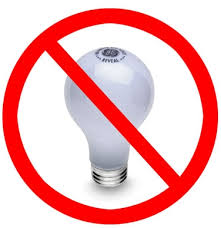There are about three people in the entire United States who feel nostalgic about the old National Speed Limit Law. It was passed in 1974 in response to an energy crisis and a frenzy of legislation intended to make us consume less. It prohibited speed limits higher than 55 MPH, and was among the most unpopular laws ever enacted. Not that driving slower isn’t safer – we all know it is. Nor because it didn’t save energy – it did (though only a fraction of what its liberal advocates predicted). It was one of the most hated laws because most of us just don’t think how fast we drive is federal business.
It quickly became one of the most widely ignored, and openly flaunted, laws since prohibition. Most states opposed it and more than a few refused to enforce it. Fourteen years later, Congress relented a bit and raised the limit to 65 on a few rural interstates, but that did nothing to quiet the almost-universal opposition. It became something of a cause, and when Republicans took control of the House of Representatives in 1994 (for the first time in 40 years), their first highway bill repealed the law altogether, putting speed limits back under State control again. It was arguably their most popular accomplishment, and remains today a symbolic icon for activists who seek to push back against government over-regulation. Remember the Alamo! Remember the 55-MPH speed limit!
 If today’s Congress, once again under new Republican control (this time in both the House and Senate), wants to strike a similar blow for freedom that Americans will remember for a long time, I have a simple suggestion. Repeal the ban on incandescent light bulbs, which became final last year and about which millions are still angry. Not to mention the tens of thousands who lost their manufacturing jobs because of it.
If today’s Congress, once again under new Republican control (this time in both the House and Senate), wants to strike a similar blow for freedom that Americans will remember for a long time, I have a simple suggestion. Repeal the ban on incandescent light bulbs, which became final last year and about which millions are still angry. Not to mention the tens of thousands who lost their manufacturing jobs because of it.
Light bulb jokes were popular for many years as a way to poke fun of stereotypes. I remember several old ones about how many Republicans it takes to change a light bulb, especially popular during the early Reagan years. It took one to screw in the bulb, one to steady the chandelier, one to claim the bulb wasn’t truly needed, and one to reminisce about the old bulb. When I went into state government, there was a joke about how many bureaucrats it takes to change a light bulb, and the answer was, “Who said anything about change?”
But the light bulb ban is no joke for most people. Every single American has to change ALL the light bulbs in their homes when they eventually burn out, because the regular, cheap incandescent bulbs are no longer sold (millions of people have horded remaining supplies). The breakthrough invention of Thomas Edison that brought civilization out of the whale oil age – the light bulb that itself became our iconic image to illustrate a good idea – has now been banned by federal law.
House Republicans thrice made half-hearted efforts to repeal the ban by tacking riders on spending bills, including one at the end of 2014. Those riders do not repeal the ban, but simply stop the Department of Energy from enforcing the restriction on sales or imports – until the next spending bill. Too little too late for most stores that have quit selling regular bulbs because manufacturers have quit making them. GE closed its last incandescent bulb factory several years ago when the phase-out began, and laid off thousands of West Virginia workers.
There is no question that the new compact fluorescent bulbs are more efficient, use less electricity, and last longer. I like them, and I use them. But some people don’t, because of the weird visual effect of fluorescent lighting, the higher cost, or whatever. Personally, I don’t care what kind of bulbs people use in their own homes – maybe that’s why we need government.
After Edison tried and failed 9,000 times to find the right material for a light bulb filament that would glow but not burn, he finally found the right combination and changed our world. It took years of hard work by a team of two dozen assistants. That’s why Edison sometimes said genius is “10% inspiration and 90% perspiration.” If today’s Republic leaders really want to prove their oft-touted belief in limited government – and score an accomplishment that people will remember for a generation, they ought to repeal the light bulb ban. The light bulb ban could be for them what the national speed limit was to their “Contract with America” predecessors.
(A version of this column appeared in the Grand Junction Daily Sentinel April 6, 2015)




Comments on this entry are closed.